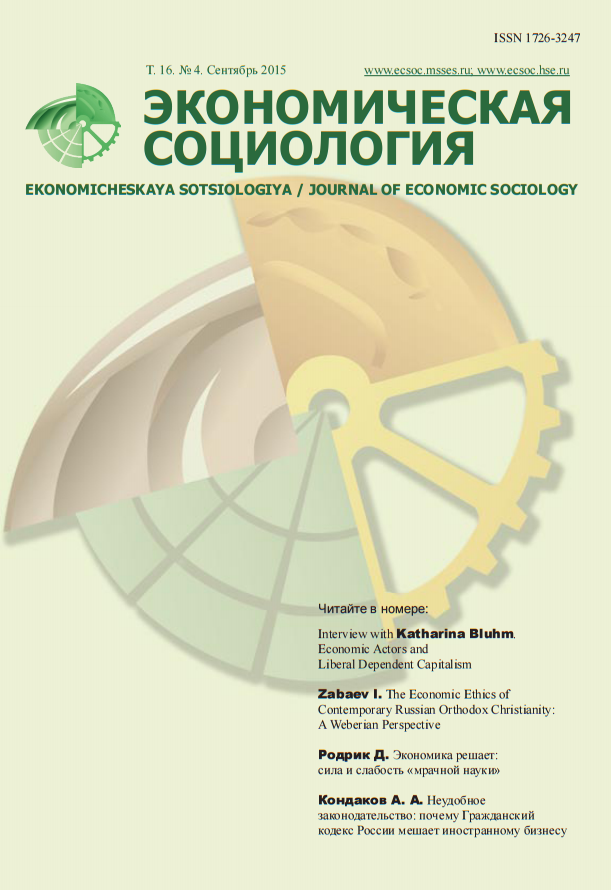The Economic Ethics of Contemporary Russian Orthodox Christianity: A Weberian Perspective
Abstract
This article presents a discussion of the economic ethics of contemporary Russian Orthodoxy, manifested in the practices of economic actors, and Orthodox economic ideology, drawing on the approach formulated by Max Weber in The Pro-testant Ethic. Orthodox ideology and economic ethics are analyzed using popular Orthodox literature (1990–2004), doctrinal texts on social and economic issues, as well as materials gathered in ethnographic expeditions between 1999–2004 to eight monasteries in various regions of the Russian Federation. Key aspects of the economic ideology include love for one’s neighbor and work as a means for self-sufficiency; the result of work is considered to be the gift of God. Key ca-tegories of economic ethics are obedience and humility. This article concludes in the framework of Weber’s approach, that such ethics of obedience and humility determine the attitude towards economic activities, which the Russian Orthodox Church generates among its followers.













